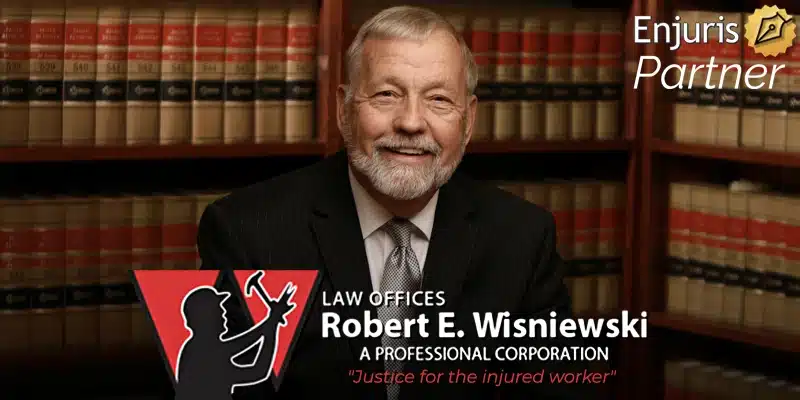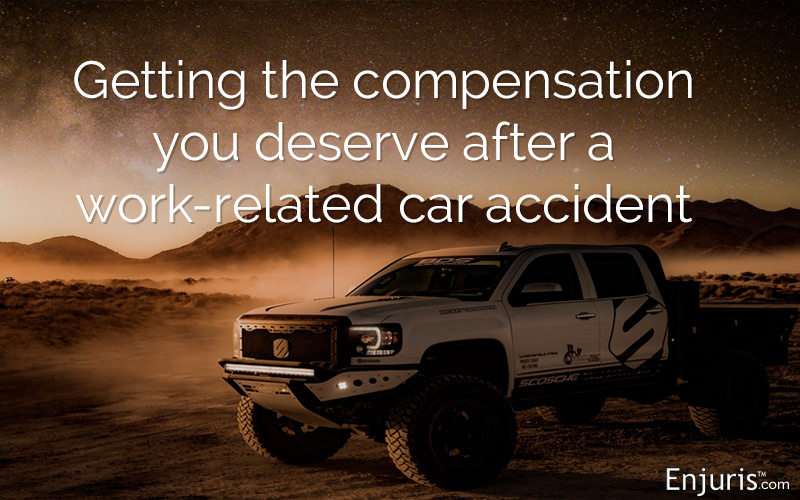Exploring your legal options following a work-related car accident
Liability and damage issues following a typical car accident are generally pretty straightforward. However, things become more complicated when you’re injured in a car accident while on the job.
Workers’ compensation is a form of insurance that pays medical expenses and lost wages to employees who are injured while doing their job. In some situations, workers’ compensation benefits will be available after an automobile accident that happens at work. In other situations, you’ll have to file a personal injury lawsuit to recover damages.
In this article, we’ll take a look at the legal landscape following a work-related car accident so you can be sure to receive the compensation you deserve.
When are car accidents covered by workers’ compensation insurance in Arizona?
In Arizona, almost all employers are required to carry workers’ compensation insurance. There are only 2 exceptions to this rule:
- Employers aren’t required to carry workers’ compensation insurance for independent contractors or domestic servants.
- Employers aren’t required to carry workers’ compensation insurance for casual (i.e., occasional or sporadic) employees who aren’t hired to further the usual business of the employer.
Other than those 2 exceptions, your employer must carry workers’ compensation insurance — regardless of how many employees they employ.
But is your car accident covered by your employer’s workers’ compensation insurance?
Well, it depends.
Under A.R.S. 23-904, an Arizona employee is entitled to workers’ compensation benefits if they sustain a “personal injury by accident arising out of and in the course of employment.”
This means that as long as you were performing a required duty or function of your job when the car accident occurred, you can receive workers’ compensation benefits. For example, workers’ compensation benefits will generally be available for an accident that occured while you were:
- Making a delivery
- Traveling for a work-related purpose
- Completing a work-related errand
- Travelling between worksites
- Transporting an employee for a work-related purpose
When are car accidents NOT covered?
An employee can’t recover workers’ compensation benefits if the accident occurred outside the scope of their employment. For example, workers’ compensation is generally not available for an accident that occurred:
- During your commute between work and home
- While you’re off the clock for lunch or a personal break
- During activities that deviate from your regular work duties (for example, making a detour to run a personal errand while driving between work sites)
What damages are covered by workers’ compensation insurance in Arizona?
All injuries (other than self-inflicted injuries) are covered so long as the injury was caused by the car accident. Once you’re able to show that your injury was caused by the car accident, Arizona workers’ compensation will pay for:
- Medical expenses
- Wage loss benefits
- Death benefits for certain dependents
In Arizona, wage loss benefits are calculated according to the nature of the injury, with injuries falling into 1 of 4 categories:
- Temporary partial disability: applicable to those who can still work but in a reduced capacity
- Temporary total disability: applicable to those who are temporarily unable to work
- Permanent partial disability: applicable to those who suffered a permanent injury but are still able to work in some capacity
- Permanent full disability: applicable to those whose injury is so severe that they’ll never be able to work again
Notably, property damages are NOT paid by workers’ compensation. However, property damages may be covered by your employer’s car insurance policy or your own car insurance policy.
What if I caused the car accident?
Workers’ compensation is a no-fault insurance system. This means that you can still receive workers’ compensation benefits even if you caused the car accident (so long as you didn’t intentionally cause the accident).
But what happens if you injure someone else in the accident? This is where the theory of respondeat superior may come into play. The term “respondeat superior” simply means that an employer is responsible for the actions of its employees while they’re acting under the scope of their employment.
In other words, if you injure a third party in a car accident while performing a required duty or function of your job, your employer will be liable for the damages sustained by the third party.
In these cases, your employer (or their insurance company) will often try to get off the hook by looking for any sign that you were acting outside the scope of your employment.
For example, if you’re driving between 2 work sites but stop to get coffee and the car accident occurs in the parking lot of the coffee shop, your employer may argue that you were acting outside the scope of your employment and therefore respondeat superior isn’t applicable.
Can I file both a personal injury lawsuit and a workers’ compensation claim?
When workers’ compensation applies, you generally can’t sue your employer for personal injury damages. However, there is an exception if you’re injured through the “willful misconduct” of your employer, in which case you can file a civil lawsuit against your employer. Also, if you waive your right to file a workers’ compensation claim prior to the accident, you can file a civil lawsuit against your employer.
On the other hand, if a third party (such as another driver) caused your car accident, you can file a workers’ compensation claim with your employer and file a civil personal injury lawsuit (or file an insurance claim) against the third party.
A personal injury lawsuit may provide you with the opportunity to recover compensation for damages that you wouldn’t otherwise be able to recover through your workers’ compensation claim, such as:
- Property damages
- Pain and suffering damages
- Punitive damages
Work-related automobile accidents raise a host of issues and legal theories that don’t arise in a traditional car accident case. We don’t recommend working through these issues on your own. Use our free online directory to locate an experienced Arizona attorney who can help.
See our guide Choosing a personal injury attorney.


